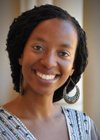 A Kovsie student is heading to London to attend the June G8 2013 Youth Summit. Tumelo Moreri is part of a chosen few who will walk among world class leaders as a delegate of the African Union.
A Kovsie student is heading to London to attend the June G8 2013 Youth Summit. Tumelo Moreri is part of a chosen few who will walk among world class leaders as a delegate of the African Union.
The summit provides a platform for young leaders where they are able to collectively voice their opinions. It also gives them the opportunity to gain valuable insights on international diplomacy in order to tackle 21st century challenges head on.
The African Union delegation, of which Tumelo is part, includes representatives from the Democratic Republic of Congo, Botswana, Kenya, South Africa, Nigeria and Zimbabwe. It consists of a Head of Government, Sherpa, Press Secretary, Minister of Trade and Industry, Minister of Finance, Minister of Justice, Minister of Foreign Affairs, Minister of Energy and Climate Change, Minister of Development, and Minister of Defence. They are responsible for developing and negotiating position papers with regards to the various ministerial positions.
Tumelo Moreri is a co-founder of Tomorrow’s Leaders Today in her home country, Botswana. She is currently the International Affairs Officer of the Student Representative Council (SRC) at the Bloemfontein Campus. “The highlight for me is the fact that I am representing Africa. Africa’s voice will get to be heard through us,” says Moreri. “I see this as a huge opportunity to strive to make a contribution towards Africa and finding solutions unique to her problems. This will be a stepping stone to effecting change. This learning curve will shape and influence global discourse.”